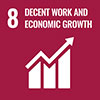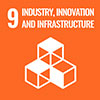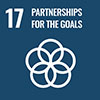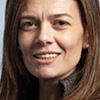Innovating in Marketing. Metaverse, a 360 analysis
Since Mark Zuckerberg announced in September 2021 the change of Facebook’s name to Meta and presented his vision of the Metaverse, there has been no end to speculation in the marketing world about its impact and brands have been announcing their reactions in the media. The perception of the impact as a disruption in the customer-company relationship makes companies want to be present in the race to be pioneers in this new virtual reality.
Although gamification has been a marketing technique of recurrent use in the 21st century, it has been somewhat relegated to the advertising field in the gaming industry. However, the Metaverse is presented as a holistic view of life, where through his or her avatar, the protagonist consumer discovers new needs in a virtual and parallel world modelled on his or her whim.
This means that the Metaverse is much more than an incubator of marketing ideas for brands. The conception of a new universe is a world of speculation where states, countries and communities are for sale, cities are to be built and where, in Zuckerberg’s vision, society will be able to invent, build or reproduce its reality. That is, to relate, buy and work, in short, to live.
As in any technological paradigm, companies are facing a new transformation. Without concluding the change of Customer Centricity, 100% digital customer and with the imminent reality of 5G and IoT, the Metaverse is another reality that implies for companies the conception of the customer under multiple personalities, as many as metaverses, new products, channel integration, new currencies, new legislations, new and multiple sources of decentralized data, etc.
This new scenario requires urgent research, which, although brands can face with more or less difficulty, in the field of research is complex given that the advances and incursions of companies are still incipient and there is no data on social and consumer behaviour in the Metaverse. For this reason, this article aims to be a holistic compilation of what the metaverse is, its background and consequences on behaviour in the purchase decision process. Its conclusions will allow us to delimit specific areas of research on consumer behaviour patterns in this new virtual reality.
ODS




 M. Dolores Méndez-Aparicio
M. Dolores Méndez-AparicioPhD cum laude in Legal, Economic, and Social Sciences from the University of Burgos. Computer engineer from the Polytechnic University of Madrid, graduate in Advertising and Public Relations from the Universitat Oberta de Catalunya and master degree in Information and Knowledge Society from the Universitat Oberta de Catalunya. Certification in Customer Experience by the Association for the Development of the Customer Experience (DEC). She is a member of i2TIC, ACEDE and AEMARK, software applications manager at the Mutua Madrileña group (finalist in the 2013 and 2015 Innovation program). She is also a collaborating professor at the UOC and a reviewer for prestigious journals and associations. Her research activity focuses on customer experience, the employee, digital experience and innovation. She also publishes in congresses, books, journals, reports and methodologies. Her last article was on IGI Global in 2021 and DEC Association in 2022.
 Ana Isabel Jiménez Zarco
Ana Isabel Jiménez ZarcoDoctorate in Economic and Business Sciences from the University of Castilla La Mancha (UCLM) and postgraduate in Construction of Ecology Models and Management of Natural Resources. Awarded for her doctoral thesis at the Institute of Economic Studies in Madrid. Assistant professor in Economic and Business Studies at the Universitat Oberta de Catalunya (UOC), in the area of innovation and marketing, and director of the master in Digital Marketing. Writer of many book chapters and articles in publications of international renown, and evaluator for research projects for the ANEP and EU, as well as prestigious international publications.
 Alicia Izquierdo-Yusta
Alicia Izquierdo-YustaProfessor of Marketing and Market Research at the University of Burgos and coordinator of the degree in Tourism. Bachelor of Science in Economics and Business from the University of Valencia and PhD in Economics and Business Sciences from the University of Burgos. Best doctoral thesis award by AEMARK (2006). She is the author of more than 50 articles in national and international journals, 40 of which are published in indexed journals in JCR and SJR, such as Telematics and Informatics, Service Business, European Journal of Marketing, Computer in Human Behavior, Tourism Management, Journal of Retailing and Consumer Services and British Food Journal, as well as of numerous book chapters.



